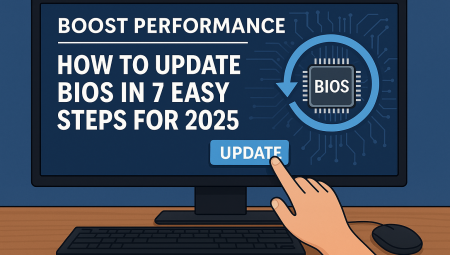As artificial intelligence continues to reshape the digital landscape, AI SEO tools are leading a quiet revolution—transforming how websites are optimized, ranked, and discovered on search engines. Among the emerging techniques, Generative Engine Optimization (GEO) is rapidly becoming a game-changer for marketers, content creators, and SEO strategists alike.
What is Generative Engine Optimization (GEO)?
Generative Engine Optimization is the process of tailoring your content to perform well in AI-generated search results rather than traditional web rankings. With tools like Google’s Search Generative Experience (SGE), ChatGPT Search, and Bing Copilot evolving rapidly, these AI engines summarize content and deliver answers to users directly.
Instead of just focusing on blue links, GEO aims to:
- Get content featured in AI summaries
- Appear in conversational Q&A responses
- Be cited by generative AI bots as a trusted source
GEO is not about replacing SEO—it’s the next level of it. It involves optimizing for visibility within AI-generated answers, entity recognition, and intent-rich content structuring.
Why Are AI SEO Tools Essential in 2025?
1. Rise of AI-Powered Search
With over 40% of Gen Z now using TikTok and AI chatbots like ChatGPT to find answers instead of Google, search behaviors are evolving. AI SEO tools adapt to these changes faster than human analysts.
2. Semantic Search Over Keyword Matching
Modern search engines prioritize semantic meaning and context. AI SEO tools help identify how to structure sentences, integrate latent semantic indexing (LSI) keywords, and emphasize topic authority.
3. Real-Time SERP and Algorithm Monitoring
Tools like Surfer SEO and MarketMuse track algorithmic behavior and SERP layout shifts in real-time. They provide dynamic recommendations, helping you remain aligned with Google updates, including Helpful Content updates and core algorithm changes.
4. Scale Without Losing Quality
Generative AI can create massive amounts of content. But AI SEO tools ensure that what you publish is optimized, natural, E-E-A-T compliant, and semantically valuable—not just mass-produced.
Key Features of AI SEO Tools Supporting GEO
- Content Grading: Evaluates content against competitors.
- NLP-Based Suggestions: Ensures alignment with AI and voice search preferences.
- Entity Optimization: Recommends specific people, organizations, and topics to include.
- SERP Heatmaps: Predicts what Google or AI models prioritize.
- AI Briefs: Generates content outlines that align with SGE and GPT search behavior.
How to Implement a GEO Strategy with AI SEO Tools
- Start with Semantic Keyword Research: Use tools like Frase and Clearscope to identify questions, context-rich terms, and searcher intent.
- Craft Structured Content: Apply H2s, H3s, FAQs, bullet lists, and numbered steps. These are easy for AI to parse and summarize.
- Focus on Clarity and Authority: Keep content concise but insightful. Cite expert sources. Mention your experience.
- Use Conversational Tones Where Needed: Especially for AI like ChatGPT, human-like tones with empathy and personality are favored.
- Monitor AI Citations: Use tools that show if your content is being referenced in AI-generated summaries (Authoritas, SISTRIX).
Top AI SEO Tools for Generative Engine Optimization
| Tool Name | Strengths | Use Cases |
|---|---|---|
| Surfer SEO | Real-time SERP & NLP data, keyword scoring | Blog optimization, live ranking tuning |
| Jasper AI | AI long-form content writing with SEO templates | High-quality AI article generation |
| Scalenut | Topic clusters, content scoring, GPT-powered outlines | Topical authority, GEO briefs |
| MarketMuse | Deep topical modeling and competitive gap analysis | Authority site building, E-E-A-T boost |
| Clearscope | Readability scoring, semantic keyword suggestions | SEO copywriting, semantic expansion |
| Frase | AI question-based briefs & answer engines | Featured snippet and FAQ optimization |
Traditional SEO vs Generative Engine Optimization
| Aspect | Traditional SEO | Generative Engine Optimization |
|---|---|---|
| Focus | Ranking URLs | Inclusion in AI answers |
| Format | Blog posts, landing pages | Summaries, snippets, answers |
| Optimization Tool | Yoast, Ahrefs, SEMrush | Surfer, MarketMuse, Frase |
| Keywords | Long-tail, exact match | Intent-based, semantically enriched |
| Performance KPI | Click-through-rate (CTR) | Citations in AI summaries |
What Kind of Content Works Best for GEO?
- Question-based articles (“How to use AI SEO tools in 2025?”)
- Expert roundups that showcase multiple viewpoints
- Lists and comparisons (“Top 10 AI SEO Tools for 2025”)
- Case studies showing measurable results
- Answers within first 100 words of each section
- Multi-format support (text + image + table + video)
Tip: Generative engines love structured clarity. Think like an AI: How would a machine extract value from your post?
Pro Tips: Expert Tactics to Rank in Generative Results
- Repurpose Blog Posts into AI-Friendly Q&A Format
- Use Entities More Than Keywords
- Create Schema Markup for FAQs, Authors, and Reviews
- Include Author Bios With Real Credentials
- Track Your Content’s Inclusion in AI Tools
- Experiment With Voice Search Optimization
- Add Visuals With Descriptive Alt Texts
Frequently Asked Questions (FAQ)
What are the differences between SEO and GEO?
SEO is about ranking your content; GEO is about getting your content quoted or featured in AI answers. GEO requires semantic optimization, expert input, and structured formatting.
Do AI SEO tools help with traditional SEO too?
Absolutely. Many tools like Surfer SEO or MarketMuse not only support GEO but also help improve traditional rankings by offering deeper insights into SERP behavior, competition, and on-page improvements.
How can I check if my site is used in AI summaries?
Use platforms like Authoritas or search your brand/URL in ChatGPT and Bing AI. Check if your domain appears in citations or mentioned answers.
Final Thoughts & Community Call
Generative Engine Optimization is no longer futuristic—it’s here, it’s evolving, and it’s changing the rules of search visibility. With the right tools and strategies, your content can rise to the top, not just on Google’s 1st page, but inside the AI itself.
💬 Have you tried optimizing for AI search yet? Which tools worked best for you? Share your thoughts and tips below — let’s grow together!



